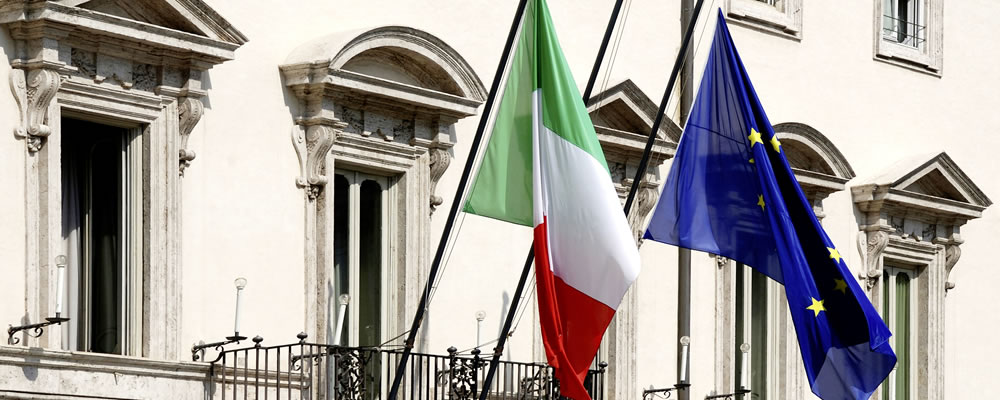Euro Pound Sterling (EUR/GBP) Exchange Rate Softens as Italian Economy Enters Recession
News that Italy has fallen into a state of recession saw the Euro to Pound Sterling (EUR/GBP) exchange rate moving lower this morning.
After contracting -0.1% in the third quarter the Italian economy shrank by a further -0.2% in the final three months of 2018.
This underwhelming economic performance naturally weighed on the Euro (EUR), with investors still concerned by the Italian government’s spending plans.
The Eurozone as a whole also posted lacklustre growth in the fourth quarter, suggesting that the currency union is unlikely to recover its lost momentum any time soon.
A -4.3% sharp contraction in December’s German retail sales added to the bearish mood of EUR exchange rates, meanwhile.
As confidence within the Eurozone’s powerhouse economy continues to show signs of weakening the strength of the Euro diminished further.
Pound Sterling (GBP) Exchange Rates Falter as UK House Price Growth Hits Six-Year Low
With the UK housing market continuing to show signs of a slowdown the appeal of Pound Sterling (GBP) also proved muted.
As fears of a no-deal Brexit deterred buyers house price growth fell to its lowest annual level since February 2013, with no improvement looking likely in the near future.
This left investors with little incentive to favour the Pound over its rivals, especially given the general sense of uncertainty dominating the political outlook at this stage.
Confidence in the outlook of the UK economy could deteriorate further on Friday if January’s UK manufacturing PMI weakens on the month.
While the PMI is forecast to remain within positive territory any indication that the sector is still losing momentum may weigh heavily on demand for the Pound.
On the other hand, if the manufacturing sector delivers stronger growth than expected this could shore up GBP exchange rates in the short term.
Weaker Eurozone Inflation Forecast to Extend Euro (EUR) Losses
The mood towards the Euro could sour further ahead of the weekend if January’s Eurozone consumer price index follows in the footsteps of Wednesday’s disappointing German CPI.
If inflationary pressure across the Eurozone eases as forecast EUR exchange rates are likely to extend their recent downtrend further.
Investors expect to see the annual inflation rate slow from 1.6% to 1.4% at the start of 2019, a move which would take the CPI further below the European Central Bank’s (ECB) 2% target.
With ECB policymakers already taking a more cautious view of the economic outlook any slowdown in inflation could push back the potential timing of a 2019 interest rate hike.
As long as the odds of the ECB tightening monetary policy in the months ahead continue to diminish this is likely to keep the EUR/GBP exchange rate under pressure.



